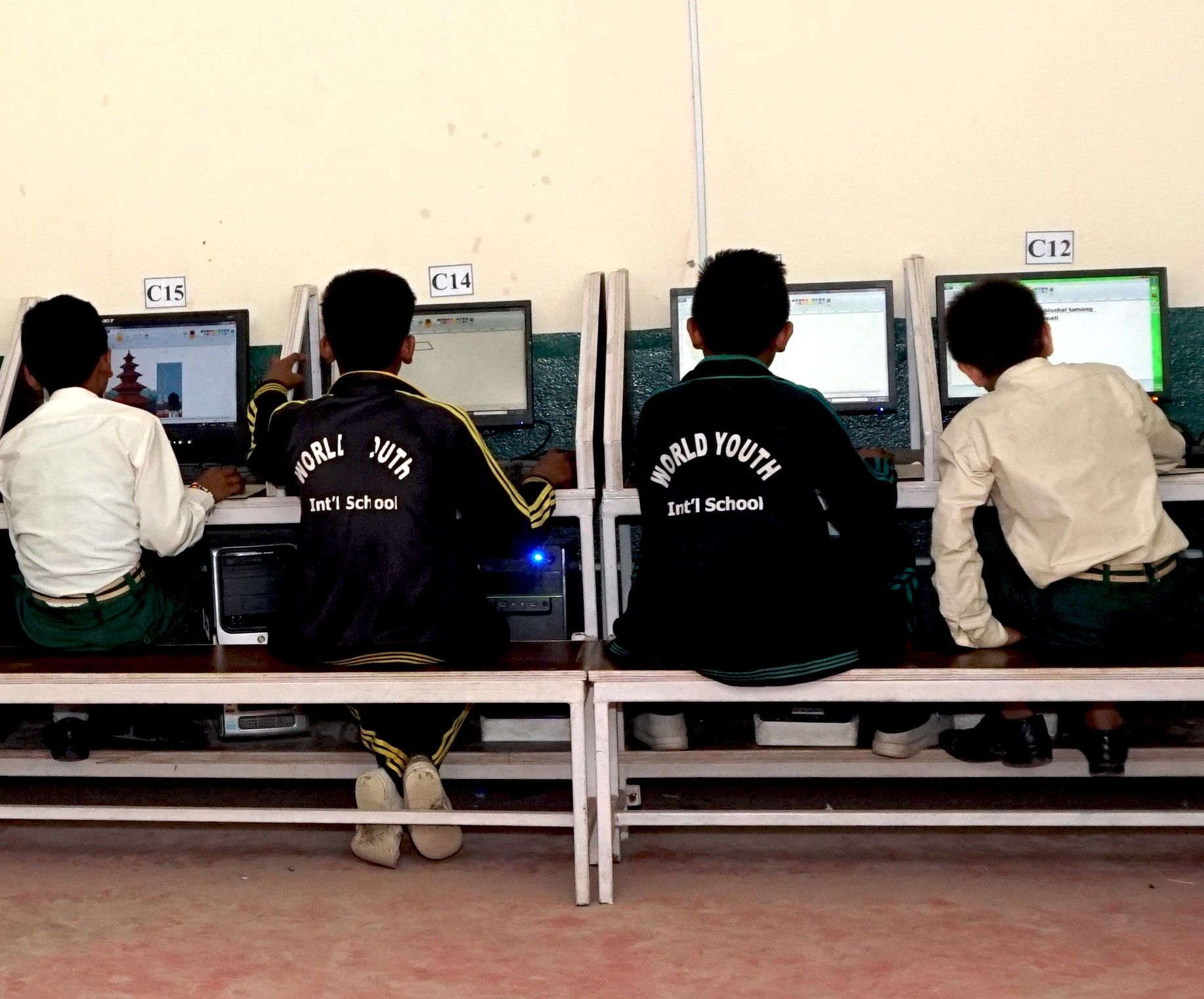Nepal's education sector has been severely impacted by the pandemic and with the schools now being in lockdown for more than six months, we are seeing the long-term implications it’s having on students and their surrounding communities.
Remote learning has become one of the only options for children to continue their education. While parents are in strong agreeance that their children should not miss schooling even through the lockdown period, the digital divide has rendered education incredibly challenging for students and forced additional pressure on parents.
The lack of knowledge about information technology and the access to computers and internet are only a few hurdles for digitising education in Nepal. According to Nepal’s Education Department, only 48% of public schools are online and enforcing digital learning. Although the Government has released an "Alternative Student Learning Guide" that identifies television, radio, online and offline training, self-learning and television as resources to be used, restricted access to these technologies is a major problem for students.
Reena, a 9-grade student at the World Youth International School, feels she can't concentrate on her studies, not only because of the chaos and fear, but also because of the limitations in accessing her educational resources online.
“It has been more than six months that we have been in lockdown. With everyone panicking about the virus, I am afraid to even go outside of my room or talk to people. Even though we have been given information about digital education, I simply do not know where I could start or how to access it. I do not have access to internet and my parents cannot afford to get a laptop or mobile phone so that I can continue my education,” highlights Reena.
The World Youth International School has also been facing numerous obstacles when it comes to online learning. The main issue for the School’s parents has been the financial burden that technology brings along with it. Parents and students simply cannot afford the costs involved with acquiring mobile data/WIFI and laptops.
Aside from the financial aspect, another hurdle of implementing online learning is the new environment students need to adjust to. Many are not used to studying off of school grounds. It is really critical for students to have a stable and nurturing environment to learn and flourish, let alone to concentrate. This tends to have huge pressure on the students with poor living conditions. The current situation also has a rooted mental impact to the children.
Children and their families in developing countries like Nepal do not have the same access and support that we do here in Australia. There are no government stimulus packages being offered and very few Nepali people are working. General expenses like food and fuel have tripled in price and families are really suffering. Education is crucial for breaking the cycle of poverty so many families have lived in for generations in Nepal. For most families, their children are the first generation to be literate, and to have access to education at all. Read more about the impact of the pandemic on student’s mental health here.
Due to the dedication of the World Youth International School’s teaching and administration staff, students are being updated on the School’s curriculum via phone calls or social media platforms. Since remote learning is uncharted territory for teachers and students alike, the teachers have also been preparing themselves via self-learning on various modules for digital education. We congratulate the efforts of the staff on going above and beyond for their students in these challenging times.
There are only a handful of solutions to help bridge the digital education gap in Nepal. The proper allocation of budget for education and plans for digital towers for digital accessibility by the government is one of the options to digitize education. But with the economic and political instability, it will take years for the plan to yield a good result. Until then, it is in our hands to help these children receive an education, in any way we can.
Visit our website for more information on how World Youth International aims to educate, empower and inspire positive change in the global community.

 World Youth
World Youth










